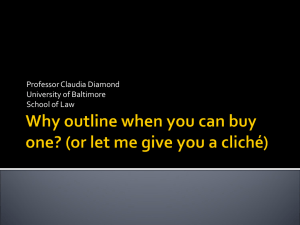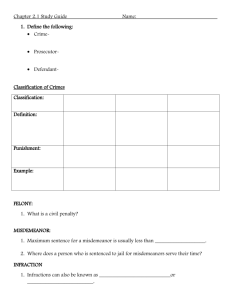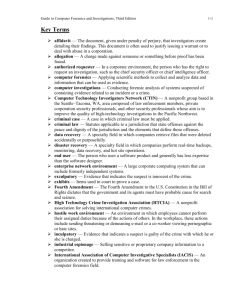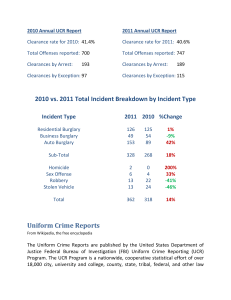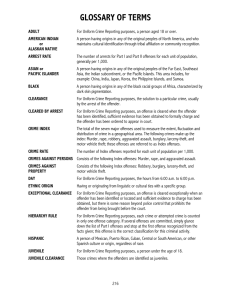File
advertisement
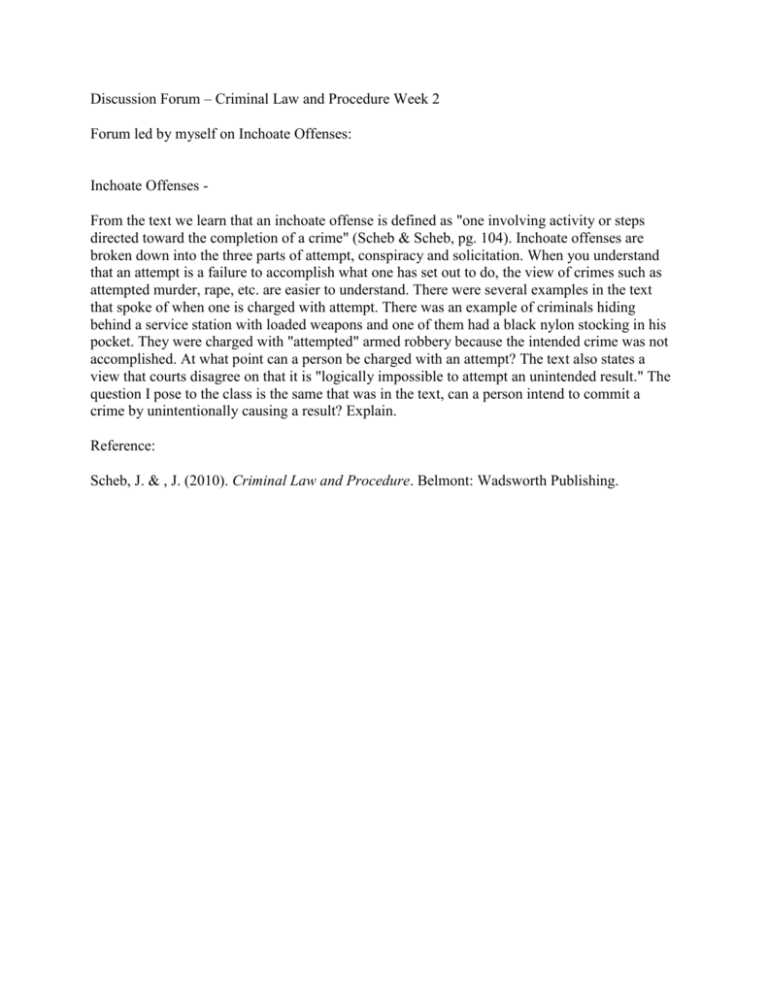
Discussion Forum – Criminal Law and Procedure Week 2 Forum led by myself on Inchoate Offenses: Inchoate Offenses From the text we learn that an inchoate offense is defined as "one involving activity or steps directed toward the completion of a crime" (Scheb & Scheb, pg. 104). Inchoate offenses are broken down into the three parts of attempt, conspiracy and solicitation. When you understand that an attempt is a failure to accomplish what one has set out to do, the view of crimes such as attempted murder, rape, etc. are easier to understand. There were several examples in the text that spoke of when one is charged with attempt. There was an example of criminals hiding behind a service station with loaded weapons and one of them had a black nylon stocking in his pocket. They were charged with "attempted" armed robbery because the intended crime was not accomplished. At what point can a person be charged with an attempt? The text also states a view that courts disagree on that it is "logically impossible to attempt an unintended result." The question I pose to the class is the same that was in the text, can a person intend to commit a crime by unintentionally causing a result? Explain. Reference: Scheb, J. & , J. (2010). Criminal Law and Procedure. Belmont: Wadsworth Publishing.

